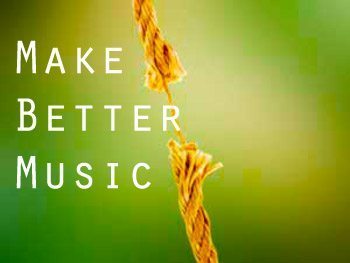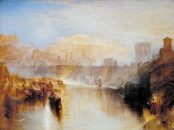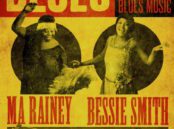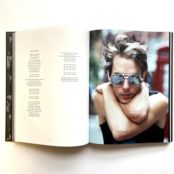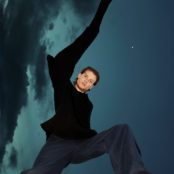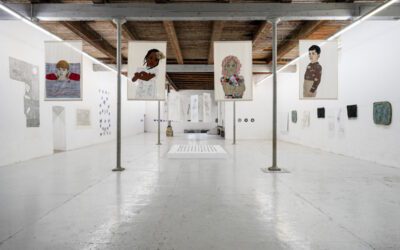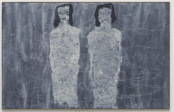Perhaps I’m falling into the trap of feeling old again…
But while I was ploughing through a load of new music recently, I started wondering about computer assistance. There’s an element to this that I hadn’t really considered before.
Before I jump in, I do just want to make it clear that I’m not quite in the quill-and-ink wielding camp just yet, although I’m close. I’d probably be quite happy having a flagon of mead with them once in a while, but I do try to keep with the times, even if it’s a token effort. There is, however an old ghost that has come to haunt me.
…there’s the frustration of not be able to play it, and make the sounds you want.
It occurred to me the other day, after I’d picked up my guitar for the first time in a while, and for the first time in my life my skills had noticeably diminished. I’ve not played much for a while, and all I can do is assume that I’m at an age now (the grand old age of 35 and three quarters, if you must know) where things that are not exercised regularly will start to wither away. Anyway, this brought to my mind a word that I hadn’t uttered for many years: PRACTICE.
If I am to regain my guitar chops, I’m going to need to practice. The next thing I thought of was “why don’t I practice using music software?”. I don’t mean this in the sense of “how can i use software to practice, for example the guitar”. I mean I don’t try to get better at using software by knowingly practicing, I just make music and learn as I go. I think most software users, after a couple of coy “first dates” with their software of choice, throw aside their inhibitions and get down to full on lovemaking pretty much constantly after that.
In my own experience of learning an instrument, there is that early period of excitement at actually having the instrument. Then there’s the frustration of not be able to play it, and make the sounds you want. Then the determination kicks in, you have to accept that you need to work to get the results. It will probably take years of regular effort to get good at it. Now I’m not saying that things need to take a long time and be difficult to be good. I just think that making that sort of commitment is healthy and sets up a valuable learning process.
When it comes to making music with software, lots of stuff have been made easy, so you can start making music without learning very much. I’m not against this, but I do think that having “boffins” (the makers of the software) automating lots of things to make everything easier and quicker for the “users” eventually leads to a loss of knowledge at ground level. You can very easily make half decent sounding music without having the slightest idea what you are doing. This opens up some interesting possibilities. Should more respect be given to one piece of music over another based on how much practice the creator has done? If you should judge music solely on whether or not it sounds good to you (and this is the only correct method!) then it surely makes no difference how the music came about.
There is, however an old ghost that has come to haunt me.
The answer, to my mind, comes from a an earlier stage in the music making process. Practice involves repetition, and when forced to perform the same actions over and over again, you soon learn what you like and what you don’t. You also learn what works and what doesn’t and what stands up to repeated listening. You learn patience, and you learn to work through failure. You learn to look at the bigger picture. It’s probably fair to say that each day there are more creative musicians working almost exclusively with software. I don’t think that many people practice writing with software – they just learn by trying, which is of course a completely valid way to learn. There is just a part of me that wonders if not having to practice things that you don’t like or find hard to do leads to a more limited musician, with less rounded musicianship.
Perhaps the exclusive use of highly user-friendly music software can fool people into thinking they have more skills than they do. It’s like assembling a flat-packed piece of furniture, and thinking “I’m pretty good at this carpentry lark”. The danger of teaching yourself is that you can be unaware of gaps in your knowledge…and this combined with using software where it is harder to make mistakes than it is to make sounds that are pleasant enough to listen to might just be leading to an explosion of deluded (and therefore under-achieving, but over-confident) creators.
About Dave. *HAPPY ANNIVERSARY – DAVE – 1 YEAR OF GREAT MUSIC TIPS*
David Learnt composition (harmony, counterpoint and orchestration) to degree level through studying Schoenbergs Fundamentals of Musical Composition. He is a founder member of Avant Pop duo Cnut, and orchestral doombience outfit Regolith.
Make Better Music is updated every Tuesday. For previous articles search for ‘Dave Graham’
Image: Francesco Marino / FreeDigitalPhotos.net

David Learnt composition (harmony, counterpoint and orchestration) to degree level through studying Schoenbergs Fundamentals of Musical Composition, the classic text on twentieth century harmony by Vincent Persichetti, Henry Mancini’s Sounds and Scores, Rimsky-Korsakov’s excellent books on orchestration as well as studying any scores that intrigued me. He is a founder member of two bands, avant pop duo Cnut, and orchestral doombience outfit Regolith, and have performed across Europe with them.

